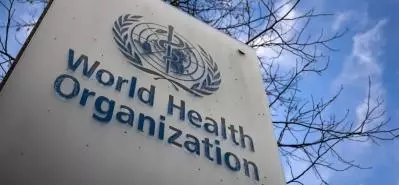
Emergence of Omicron variant underlines that pandemic is far from over: WHO
text_fieldsGeneva: The WHO director Tedros Adhanom Ghebreyesus on Monday cautioned that the emergence of highly mutated Omicron variant shows that the infectious Covid disease which claimed the lives of more than 5 million people is far from over.
Ghebreyesus was addressing the start of a special three-day meeting of the organisation's governing body in Geneva on Monday, amidst a global alert over the new strain, arguing that greater international cooperation is essential to preserve "hard-won gains" against the virus.
He added that the world remains in the grip of "the most acute health crisis in a century" even though it can be prevented, detected, and treated.
The emergence of the threatening new Omicron variant shows how important it is for the world to end the current "cycle of panic and neglect" over the COVID-19 pandemic, said the head of the World Health Organization (WHO) on Monday.
He further pushed the need for a global treaty on pandemics to help countries prevent and fight future pandemics.
"Our current system disincentivises countries from alerting others to threats that will inevitably land on their shores.
"Indeed, Omicron demonstrates just why the world needs a new accord on pandemics," Ghebreyesus said.
He said that Covid exposed and exacerbated fundamental weaknesses in the global architecture for pandemic preparedness and response.
These include complex and fragmented governance, inadequate financing, and insufficient systems and tools.
The best way to address future pandemics would be "a legally binding agreement between nations; an accord forged from the recognition that we have no future but a common future".
It will enable nations to come together and find common ground to make sustainable progress against common threats.
According to Ghebreyesus, the pandemic cannot end unless the vaccine crisis is solved.
More than 80 per cent of the world's vaccines have gone to G20 countries, and low-income countries, most of them in Africa, have received just 0.6 per cent of all vaccines.
The WHO chief also called on its member countries to support the targets to vaccinate 40 per cent of the population of every country by the end of this year, and 70 per cent by the middle of next year.
"The longer vaccine inequity persists, the more opportunity this virus has to spread and evolve in ways we cannot predict nor prevent," Ghebreyesus said.






















